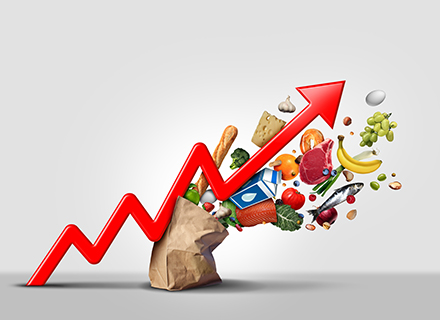Rising expenses lead to inflation, meaning consumers get less for their money. There is always some inflation, but not at these dizzying degrees. Below are the top five reasons for inflation globally.
1) High demand
There was a lot of pent-up demand after the pandemic. People were itching to travel, to go to restaurants and bars, and shop in stores again. They were also eager to see friends and family members after a long time. The demand led to a lot of spending once the lockdown ended.
Prices rise when there are scarcity and/or high demand for products or services. A corporation will boost its pricing if material, labor, or shipping costs increase due to shortages. Companies will also charge more if they discover that customers are willing to pay more due to scarcity.
2) Supply chain disruption & China’s zero covid policy
We are currently witnessing a perfect storm of factors, which began with a scarcity of all varieties of commodities during the coronavirus epidemic, owing to industrial closures and logistical jams in some of the world’s largest export hubs, such as China. It increased the costs of raw materials, manufactured goods, and transportation, which customers had to bear.
3) Excessive money printing
The Federal Reserve’s money printing policies are inflationary and are a long-term threat to the economy. The Fed has been printing money at an unprecedented pace in recent years, which has led to higher prices for goods and services. This policy is not sustainable in the long run and will eventually decrease the dollar’s purchasing power. Countries around the world pushed money into their economies to assist buyers and businesses tormented by income loss during the pandemic.
4) Overconsumption
People went on spending sprees with their government assistance money and savings when they began to emerge from the lockdown. It, along with a shortage of goods, reduced the availability of everything from refrigerators to shoes. Companies responded by raising their prices.
5) Ukrainian war
By impeding commerce in natural gas, oil, and grains, Russia’s aggression in Ukraine in February exacerbated the issue. Wheat, a mainstay in much of the world, has risen in price, as have the prices of heating and cooling homes and businesses, fueling automobiles and jets, and hauling products. It also increased the cost of fertilizer, making food production more expensive. It means that if wages do not keep pace, many people will be unable to commute to work, eat enough, or put up the thermostat in the autumn and winter.

